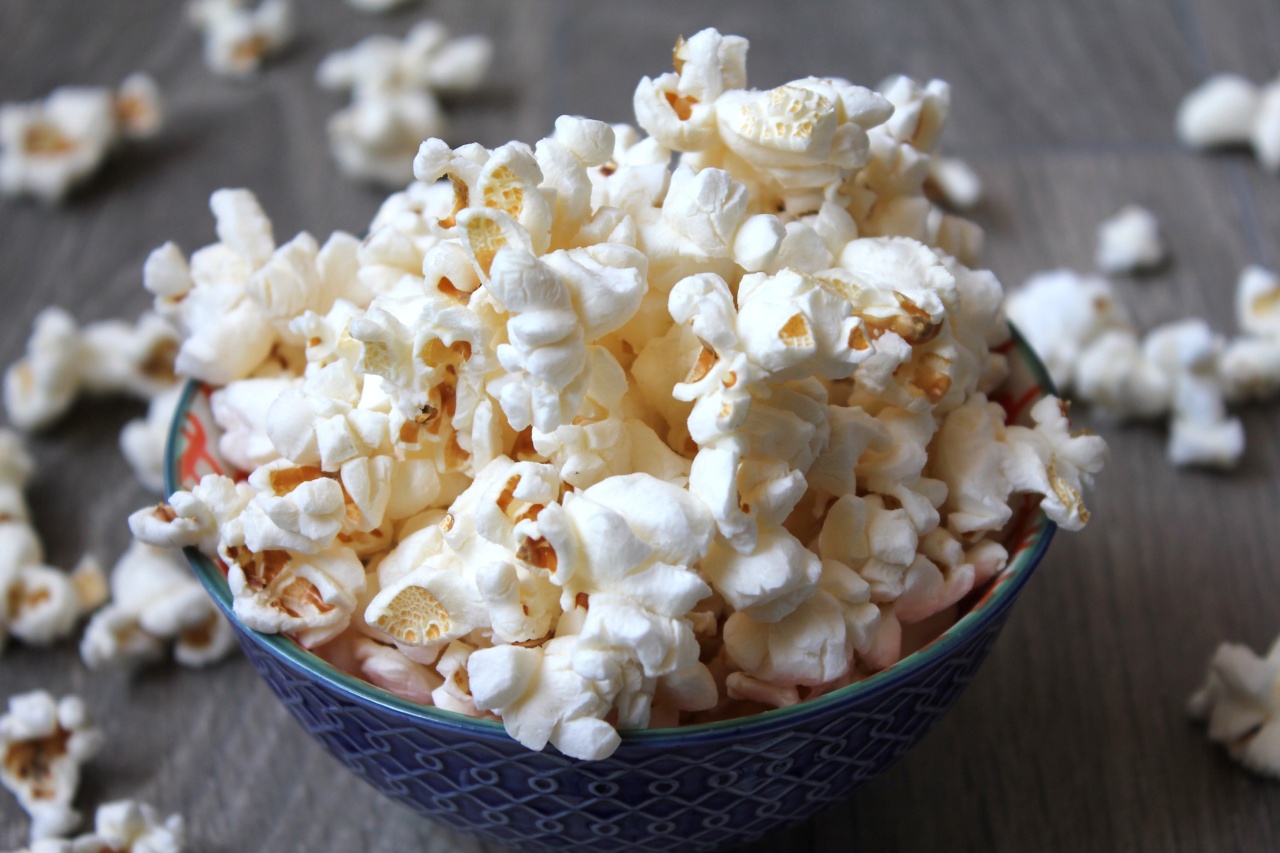Popcorn is a popular and delicious snack that is enjoyed by people of all ages. Whether you’re watching a movie, attending a sporting event, or simply craving a salty and crunchy treat, popcorn is often the go-to option.
However, many individuals are concerned about the calorie content of popcorn and how it can fit into a healthy diet. In this article, we will provide a detailed nutritional breakdown of popcorn and explore its potential benefits and drawbacks.
What is popcorn?
Popcorn is a type of corn kernel that puffs up and expands when heated. This unique characteristic is due to the moisture inside the kernel turning into steam, causing it to burst open.
The result is a fluffy and edible snack that is widely consumed around the world.
Calorie content of popcorn
One of the primary concerns regarding popcorn is its calorie content. The number of calories in popcorn can vary depending on various factors such as serving size, preparation method, and added ingredients.
On average, air-popped popcorn contains around 30 calories per cup, making it a relatively low-calorie snack option.
Popcorn and weight management
For those who are watching their weight or looking to manage their calorie intake, popcorn can be a favorable choice. Its low-calorie content allows for a larger serving size compared to other snack options.
This means you can enjoy a satisfying amount of popcorn without consuming excessive calories.
Nutritional value of popcorn
In addition to being low in calories, popcorn also offers several nutritional benefits. It is a good source of dietary fiber, providing around 1 gram per cup.
Fiber is important for maintaining digestive health, promoting satiety, and regulating blood sugar levels.
Vitamins and minerals in popcorn
While popcorn is not a significant source of vitamins and minerals, it does contain small amounts of various nutrients. These include magnesium, phosphorus, zinc, and B vitamins.
Although the levels may not be high, every little bit helps contribute to your overall nutrient intake.
The importance of portion control
While popcorn can be a nutritious snack option, it’s crucial to practice portion control. Overeating any food, even low-calorie options, can lead to weight gain and other health issues.
It’s advisable to stick to recommended serving sizes and avoid excessive butter or oil, which can add to the calorie content.
Healthy popcorn alternatives
If you’re looking for healthier alternatives to traditional popcorn, there are a few options to consider. Opting for air-popped popcorn is the best choice as it contains no added fats or oils.
You can sprinkle your popcorn with herbs and spices for flavor enhancement without additional calories. Additionally, you can experiment with different popcorn seasonings or even make your own flavored popcorn using natural ingredients.
Drawbacks of popcorn
While popcorn can be a nutritious snack when prepared in a healthy manner, there are some drawbacks to be aware of. Certain types of microwave popcorn or pre-packaged popcorn products can be high in unhealthy fats, sodium, and artificial additives.
These additives are often used to enhance flavor or prolong shelf life. It’s important to read labels and choose popcorn products that are as natural and minimally processed as possible.
Moderation is key
Like any food, it’s essential to consume popcorn in moderation as part of a well-balanced diet.
While it can be a satisfying and relatively healthy snack option, relying heavily on popcorn for daily caloric intake may lead to nutrient deficiencies. Incorporate a variety of other nutrient-dense foods into your diet to ensure you’re meeting your body’s nutritional needs.
Conclusion
Popcorn can indeed fit into a healthy diet plan when consumed in moderation and prepared in a healthy manner. Its low-calorie content, fiber content, and occasional nutrient contributions make it a viable snack option.
However, it’s crucial to be mindful of serving sizes, additives, and preparation methods to ensure that popcorn remains a healthy and enjoyable part of your overall nutrition.































